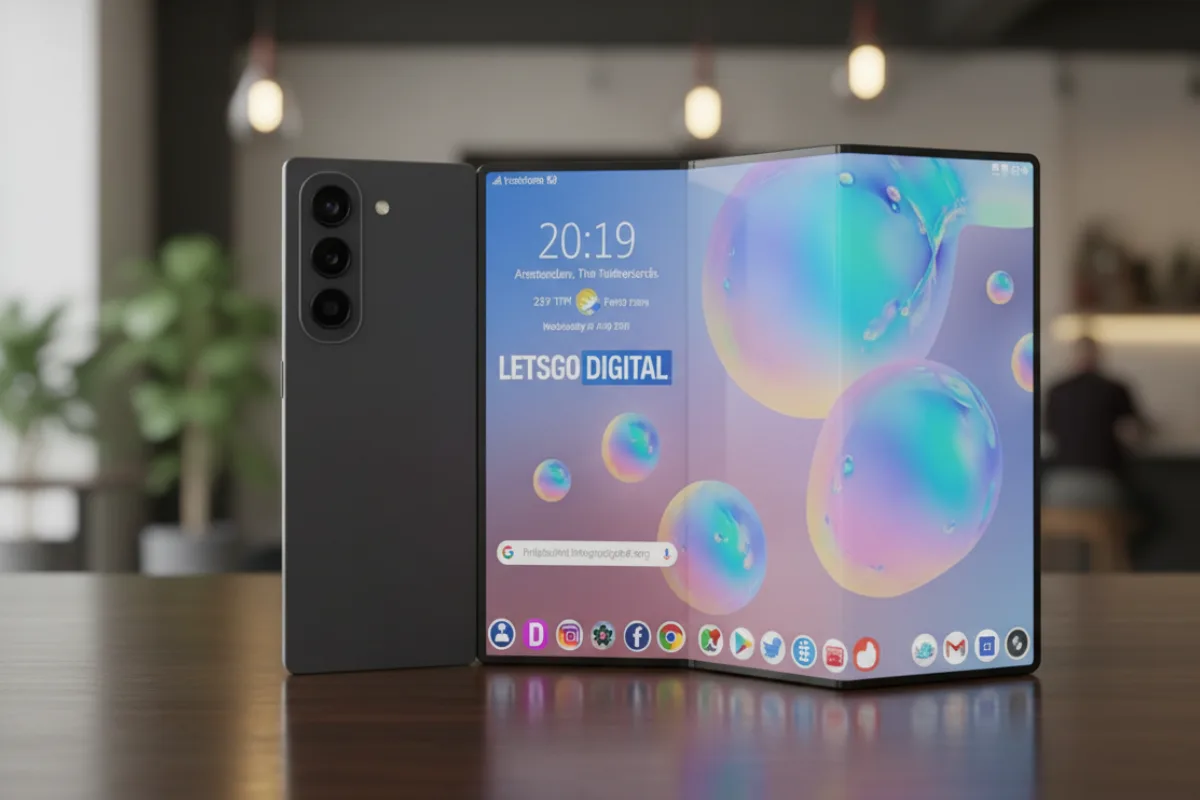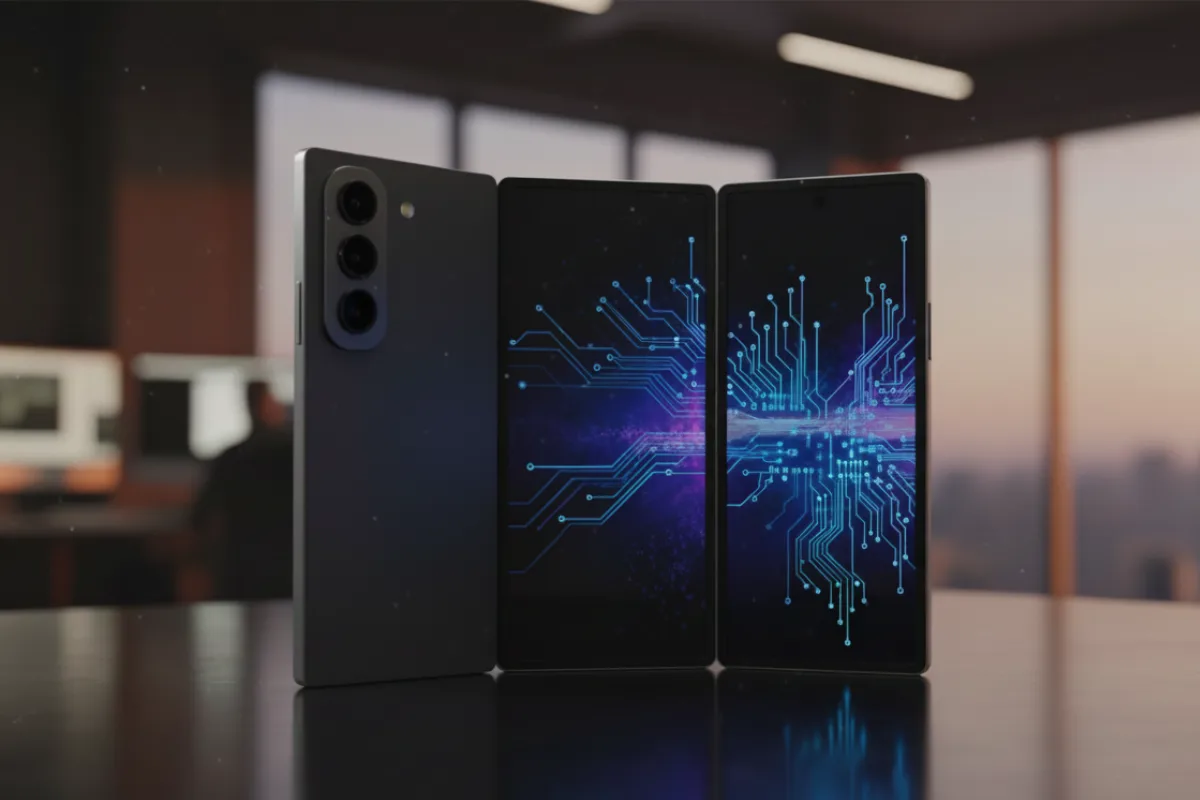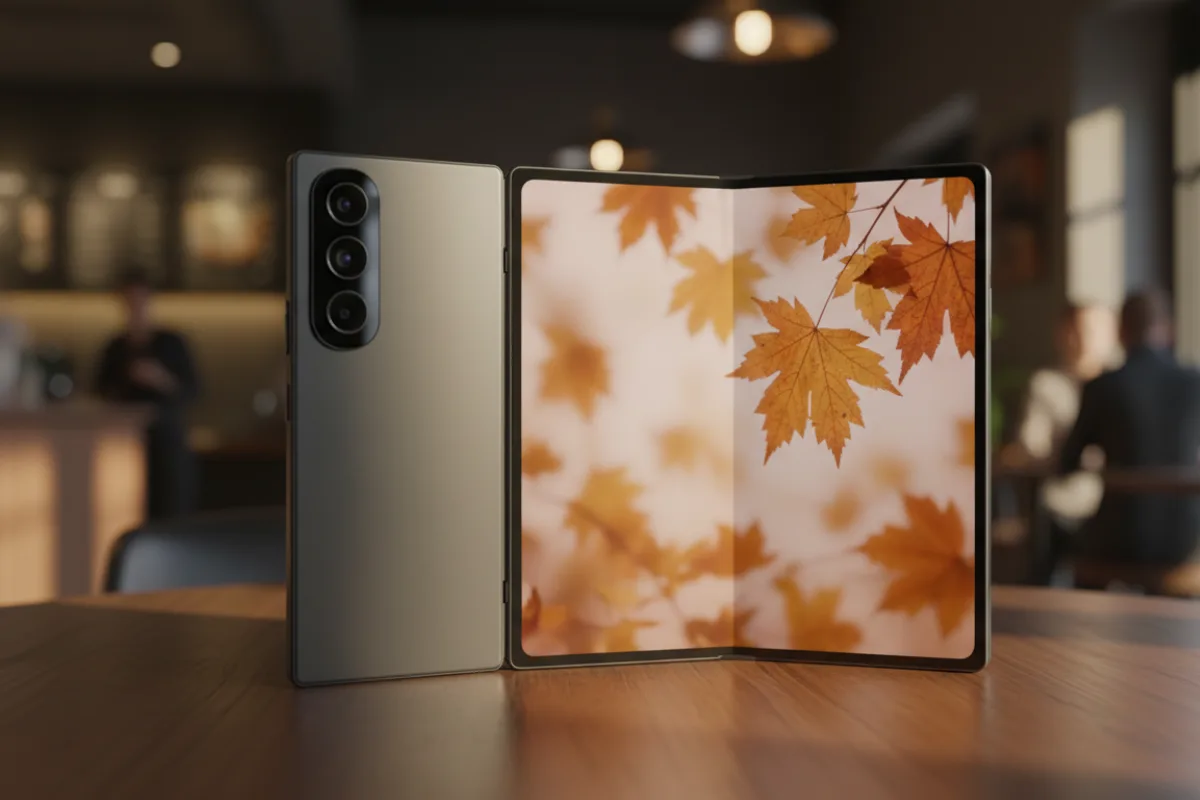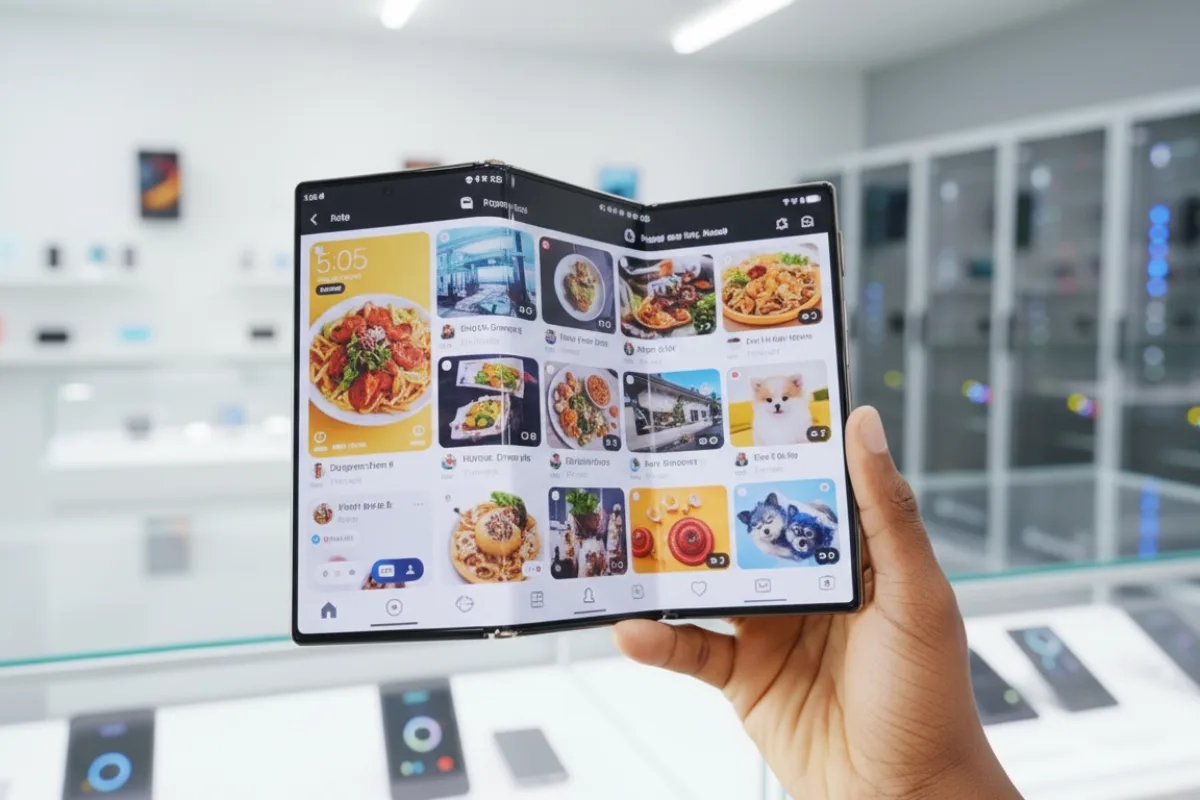Introduction
Reports from multiple supply-chain and industry outlets say Samsung will unveil its first tri-fold phone — often referred to as the Galaxy Z Tri-Fold — at the APEC summit around Oct. 31–Nov. 1. The design folds into three sections to produce a near-tablet interior when open, promising an even larger canvas for multitasking and media. Early leaks also suggest serious camera and productivity upgrades.
[related url=”https://tekznology.com/qualcomms-snapdragon-8-elite-gen-5-new-chip/”]
What makes a tri-fold different

Unlike current book-style or clamshell foldables, a tri-fold adds a second hinge so the device can open wider, delivering a larger uninterrupted display. Samsung’s leaks indicate heavy multitasking features, DeX-style desktop modes, and advanced camera hardware — possibly rivaling compact tablets and some laptops for content creation.
[related url=”https://tekznology.com/elon-musk-unveils-grokipedia-xais-bid-to-build/”]
Signals from leaks and OEM strategy

Leaks and render previews suggest Samsung is pushing camera zoom, battery optimization and software that better uses large panels. The timing at APEC would place Samsung in front of global leaders — a high-visibility stage for a product aimed at productivity users and early adopters. Analysts say component readiness (hinges, displays) is a key gating factor.
Risks and market questions

Tri-fold designs bring more mechanical complexity and higher cost. Durability, crease management and weight are central concerns. Buyers will compare the TriFold against large tablets plus foldables from Huawei, Honor and others. Samsung must show real-world battery life and software that justifies the premium.
Author note: I reviewed SamMobile, Tom’s Guide and Notebookcheck reporting to summarize the likely features and launch window — focusing on what readers should test before buying.

